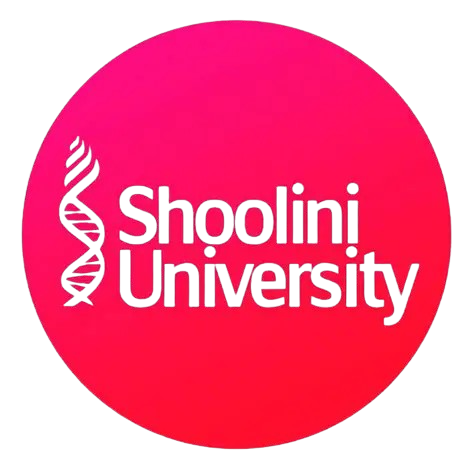" Master the language of business with M.Com — advancing your expertise in commerce, research, and professional excellence "

The Master of Commerce (M.Com) is a postgraduate program that provides advanced knowledge in commerce, finance, accounting, taxation, and business management. It is designed for graduates who wish to deepen their understanding of financial and commercial concepts while preparing for specialized roles in corporate, banking, or government sectors. The program combines theoretical learning with practical exposure through projects, case studies, and research work, ensuring students develop both analytical and problem-solving skills. M.Com graduates gain opportunities in diverse fields such as finance, auditing, taxation, investment analysis, banking, consultancy, and academia. The degree also serves as a strong foundation for pursuing professional certifications like CA, CMA, or CPA, as well as higher studies like Ph.D. With its emphasis on expertise, specialization, and career readiness, M.Com equips students to succeed in both national and international commerce and business environments.
Why Should Commerce Graduates Choose M.Com?
M.Com is a specialized postgraduate program designed to provide commerce graduates with advanced knowledge in accounting, finance, economics, and business management. For students who have completed B.Com or a related undergraduate degree, M.Com allows them to deepen their understanding of key financial and commercial concepts. This degree equips graduates with the skills required for higher-level professional roles and academic pursuits. One of the main advantages of pursuing M.Com is that it enhances career prospects in both private and public sectors. Graduates can pursue managerial positions in banks, financial institutions, accounting firms, and corporate organizations. The program also provides a strong foundation for professional courses like CA, CMA, and CPA, making it highly valuable for career growth. Additionally, M.Com helps students develop analytical, problem-solving, and decision-making skills. By studying subjects like taxation, auditing, financial management, and business law in depth, students learn to handle real-world financial challenges effectively. This practical exposure ensures that graduates are well-prepared for professional responsibilities.
M.Com also serves as a bridge to higher education, research, and teaching. Graduates can opt for Ph.D. programs or become lecturers and researchers in commerce-related disciplines. The degree not only enhances knowledge but also builds credibility and recognition in the field of commerce. Finally, M.Com allows students to specialize in areas like finance, taxation, banking, or accounting. This specialization helps them align their career paths with personal interests and industry demands, ensuring long-term success and professional satisfaction.
How Does M.Com Strengthen Knowledge in Accounting, Finance, and Economics?
M.Com provides an in-depth understanding of core commerce subjects such as accounting, finance, and economics. In accounting, students learn advanced principles, auditing techniques, and corporate financial reporting. This knowledge equips them to manage financial records, prepare reports, and conduct audits in professional settings.
-
- In finance, M.Com students study investment analysis, risk management, corporate finance, and financial planning. These subjects are crucial for roles in banking, corporate finance, investment firms, and financial consultancy. The degree ensures that graduates can make informed financial decisions and analyze complex financial data effectively.
- Economics is another vital component of M.Com. Students gain insights into microeconomics, macroeconomics, and business economics, which help them understand market trends, economic policies, and global financial systems. This knowledge is essential for careers in research, policy-making, and corporate strategy.

Furthermore, M.Com integrates practical applications through case studies, projects, and internships. This exposure allows students to apply theoretical concepts to real-world scenarios, improving problem-solving and analytical abilities. By combining theory and practice, M.Com graduates become proficient in handling complex financial and business challenges. Finally, the comprehensive knowledge gained through M.Com ensures that students are well-prepared for professional exams like CA, CMA, CFA, and government finance positions. The program strengthens both conceptual understanding and practical expertise, making graduates highly employable and competent in the commerce sector.
What is the Difference Between MBA and M.Com?
While both MBA and M.Com are postgraduate programs, they serve different purposes and cater to different career goals. M.Com focuses on specialized knowledge in commerce, accounting, finance, economics, and taxation. It is ideal for students who want to deepen their understanding of core commerce subjects and pursue academic or professional expertise in finance and accounting.
On the other hand, MBA (Master of Business Administration) emphasizes management, leadership, business strategy, marketing, and operations. It is suitable for students who wish to take up managerial roles, lead teams, and develop business solutions across various industries. MBA is more application-oriented in terms of management practices, whereas M.Com is more analytical and concept-focused.
Eligibility also differs. M.Com is generally pursued by students with a B.Com or related degree, while MBA accepts graduates from any discipline, often requiring entrance exams like CAT, MAT, or GMAT. The curriculum, teaching methods, and career outcomes vary according to the program’s orientation.
In terms of career scope, M.Com graduates often excel in finance, accounting, taxation, research, and government jobs. MBA graduates, meanwhile, are more likely to work in management, marketing, business development, human resources, and strategic planning. Both degrees are valuable, but the choice depends on whether a student wants to specialize in commerce or gain broader managerial skills.
Finally, M.Com also provides a strong foundation for professional certifications like CA, CMA, or CPA, which are less aligned with MBA. Thus, M.Com is ideal for those focusing on technical commerce skills, while MBA suits students aiming for leadership and managerial careers.
What Job Opportunities are Available After M.Com?
M.Com graduates have diverse job opportunities in both private and public sectors. In the corporate sector, they can work as financial analysts, accountants, auditors, tax consultants, investment analysts, and corporate finance managers. These roles leverage their advanced knowledge of finance, accounting, and business economics.

- In banking and financial institutions, M.Com graduates can hold positions such as banking officers, loan officers, credit analysts, and investment advisors. Their understanding of financial systems, taxation, and risk management makes them valuable assets for these organizations.
- Government jobs are also popular among M.Com graduates. They can apply for positions in public sector banks, tax departments, finance ministries, and other regulatory organizations. Competitive exams like UPSC, SSC, and RBI recruit M.Com graduates for various roles, making the degree highly versatile.
- M.Com graduates also have the option to pursue academia or research careers. Many take up roles as lecturers, researchers, or pursue Ph.D. programs to contribute to scholarly work in finance, commerce, and economics.
- Finally, entrepreneurship is another career path for M.Com graduates. With strong financial and business knowledge, they can start consultancy firms, accounting services, or investment advisory businesses, allowing them to apply their expertise in practical, independent ventures.
How is M.Com Beneficial for Academic and Research Careers?
M.Com provides a solid foundation for students aspiring to pursue higher academic and research-oriented careers. The program emphasizes research methodology, data analysis, and scholarly writing, enabling students to undertake independent research projects and dissertations. This training is essential for Ph.D. programs or research positions in commerce-related fields. The curriculum allows students to specialize in areas like finance, taxation, accounting, or business economics, which provides depth in their chosen field. Such specialization is crucial for publishing research papers, contributing to academic journals, and presenting findings at seminars and conferences.
Additionally, M.Com graduates gain critical thinking, analytical, and problem-solving skills, which are essential for both teaching and research careers. They learn to interpret complex financial data, analyze economic trends, and develop well-informed solutions to business and economic challenges. Many universities provide access to mentorship, libraries, and digital resources, which further strengthens research capabilities. Graduates are thus prepared to contribute to academia by guiding students, conducting workshops, and publishing scholarly work.
Finally, an M.Com degree enhances credibility and recognition in the academic world. It ensures that graduates are qualified for teaching positions in colleges, universities, and research institutions, while also providing the skills required for consulting, policy research, and advisory roles in commerce and finance sectors.

Affiliated Universities
Navigo Academy works with well-known universities around the world to bring you trusted and valuable programs. These partnerships give students the chance to learn from expert teachers, gain recognized qualifications, and use resources that make learning easier and more practical.
By studying with our affiliated universities, you also get global exposure, modern learning methods, and a supportive community that helps you grow. Our goal is to prepare you with the right knowledge and skills to succeed in your career and personal life.

Unlock Growth Through Global Learning
Kennedy University partners with Navigo Academy to offer programs that recognize achievements and encourage growth in multiple fields.

Innovate and Grow Globally
Amity University collaborates with Navigo Academy to provide innovative learning experiences that prepare students for global opportunities.

Build Skills for a Successful Future
Shoolini University works with Navigo Academy to deliver quality programs that build skills, knowledge, and confidence for future success.
